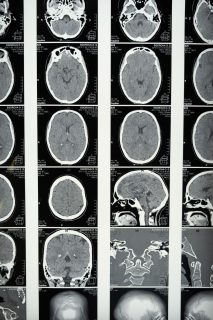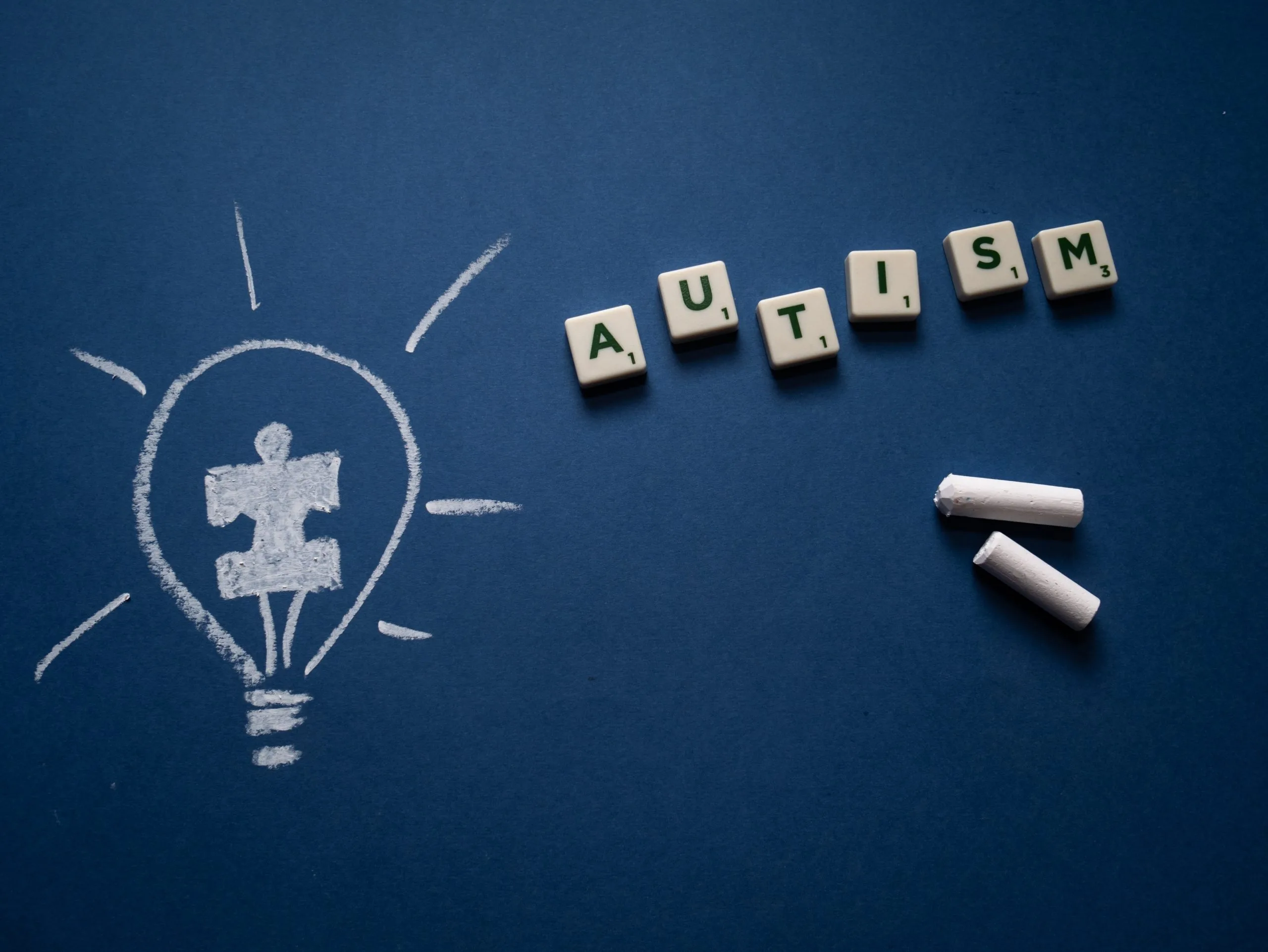April is Autism Acceptance Month. Previously known as Autism Awareness Month, the transition to this new term aims to encourage acceptance and validation of individuals affected by autism.
What is Autism?
Also known as Autism Spectrum Disorder (ASD), Autism is a developmental disability. It is characterized by social skill challenges, repetitive behaviors, speech, and nonverbal communication. It is often accompanied by sensory sensitivities and medical issues such as gastrointestinal (GI) disorders, seizures, or sleep disorders, as well as mental health challenges, such as anxiety, depression, and attention issues.
Diagnosis of Autism Spectrum Disorder
Parents, caregivers, or pediatricians pick up on early signs of this disorder before a child reaches one year of age. However, symptoms tend to become more consistently visible by the time a child is 2 or 3 years old.
A report published by the Centers for Disease Control and Prevention found that one in 36 children has autism spectrum disorder. It was also identified that boys are diagnosed with it about 4 times as often as girls.
The Lack of Awareness Surrounding ASD
Rania Ali, a psychologist, shares how there is still a far-reaching lack of awareness of the disorder. Speaking during this year’s World Autism Acceptance Week, she urged parents to be aware of the signs and symptoms of ASD. This would help create an atmosphere of compassion and promote early detection.
She shares that the biggest myth about the disorder is the belief that autistic people do not empathize with others. “Individuals with autism experience feelings, but they don’t have the same capacity to express them.” Dr. Manoj Singh, a consultant pediatric neurologist, says “Autism is characterized by poor social and communication skills and can lead to comorbidities.” These include sleeping problems, ADHD, and obsessive-compulsive disorder (OCD).
Conducting Tests Isn’t Possible
Diagnosing ASD can be difficult since there is no medical test (e.g., a blood test) to diagnose it. Doctors rely on observing the behavior of very young children and listening to parents’ concerns.
In order to fall on the autism spectrum, your child must have problems with two categories:
- Communication and Social Interaction Challenges: Children affected by ASD find it hard to read social cues, make eye contact, or have a conversation. They also aren’t able to speak as early as other children do. This makes interacting with others incredibly challenging.
- Restricted and Repetitive Patterns of Behavior: Children impacted by ASD tend to repeat their phrases, rock their bodies, and become upset with changes in their routines.
Being visible at an early age, autism symptoms tend to include:
- Delayed language development
- Repetitive patterns of actions or words
- Inability to share or display emotions
- Insensitivity to pain
- Lack of social interest
- Lack of fear of danger
- Unusual play patterns
- Unusual communication patterns
While these are common symptoms, they aren’t the same for everyone impacted by the condition.

Photo by Cottonbro Studio from Pexels
Not a “one-size-fits-all” Condition
“If you’ve met one person with autism, you’ve met one person with autism.” These are the words of Dr. Stephen Shore, a college special education professor with autism.
Martine Diab, a speech-language therapist, reiterated this, adding that “there is no ‘one-size-fits-all’ description for ASD.” Autism is a spectrum-based condition, with a wide range of strengths, challenges, and abilities, “as opposed to a set number of symptoms”. She added that it is critical that we “recognize and challenge such misconceptions.” This ensures that we promote greater identification, understanding, and acceptance for those living with the condition.
Adult Diagnosis
Symptoms are prominently diagnosed in young children. However, more adults are now asking for autism evaluations. It is important to note that while ASD can impact adults, many experience the symptoms without the condition affecting them.
This is why these impairments need to be clinically significant. Mainly occurring amongst young children, symptoms of ADS can manifest later in life due to coping mechanisms. This is especially common among high-functioning individuals.
Rachael Ferrari, M.D., an adult psychiatrist, explains how this condition manifests in adults, with symptoms ranging from anxiety in social settings to having trouble with verbal communication.
Risk Factors of ASD
There isn’t a single cause of ASD. Many different factors can increase your likelihood of having it, including:
- Being born to older parents
- Having a sibling with ASD
- Having certain genetic or chromosomal conditions, including fragile X syndrome or tuberous sclerosis
- Prenatal exposure to air pollution, including heavy metals
- Maternal immune system disorders
- Premature birth
What Is A Possible Treatment?
There is no standard treatment for ASD. Since the symptoms can be similar to other disorders, treatment must focus on an individual’s specific needs. Treatments include:
- Behavioral Management Therapy
- Cognitive behavior therapy
- Joint attention therapy
- Nutrition therapy
- Occupational therapy
- Physical therapy
- Social skills training
- Speech-language therapy
Autism Isn’t A Life Sentence
The ways in which people impacted by autism operate can range from severely challenged to highly skilled. While some people require significant support in their daily lives, others can live entirely independently. This all depends on the individual and how the condition has impacted them. This is why it’s so important to raise awareness. Educating people on this condition will help them realize that it is not a life sentence. One can still live a happy, fulfilled life with the diagnosis.
References
-
Zeidan, J., Fombonne, E., Scorah, J., Ibrahim, A., Durkin, M.S., Saxena, S., Yusuf, A., Shih, A. and Elsabbagh, M., 2022. Global prevalence of autism: A systematic review update. Autism Research, 15(5), pp.778-790.
-
Botha, M., Dibb, B. and Frost, D.M., 2022. ” Autism is me”: an investigation of how autistic individuals make sense of autism and stigma. Disability & Society, 37(3), pp.427-453.
Header Image by Polina Kovaleva from Pexels





![women [longevity live]](https://longevitylive.com/wp-content/uploads/2020/01/photo-of-women-walking-down-the-street-1116984-100x100.jpg)










With the rate of autism-diagnoses increasing, maybe school teachers should receive mandatory ASD training. There could also be an inclusion in standard high school curriculum of child-development science that would also teach students about the often-debilitating condition (without being overly complicated).
If nothing else, the curriculum would offer students an idea/clue as to whether they themselves are emotionally/mentally compatible with the immense responsibility and strains of regular, non-ASD-child parenthood.
It would explain to students how, among other aspects of the condition, people with ASD (including those with higher functioning autism) are often deemed willfully ‘difficult’ and socially incongruent, when in fact such behavior is really not a choice. And how “camouflaging” or “masking,” terms used to describe ASD people pretending to naturally fit into a socially ‘normal’ environment, causes their already high anxiety and depression levels to further increase.
Of course, this exacerbation is reflected in the disproportionately high rate of suicide among ASD people. … There could also be childrearing/parenting instruction in regards to children born with ASD.
[As for my own autism-spectrum disordered brain, I’m sometimes told, “But you’re so smart!” To this I immediately agitatedly reply: “But for every ‘gift’ I have, there are a corresponding three or four deficits.” It’s crippling, and on multiple levels!]
Low-functioning autism is already readily recognized and treated, but higher-functioning ASD cases are basically left to fend for themselves. … As a moral rule, a physically and mentally sound future should be EVERY child’s fundamental right, especially considering the very troubled world into which they never asked to enter.